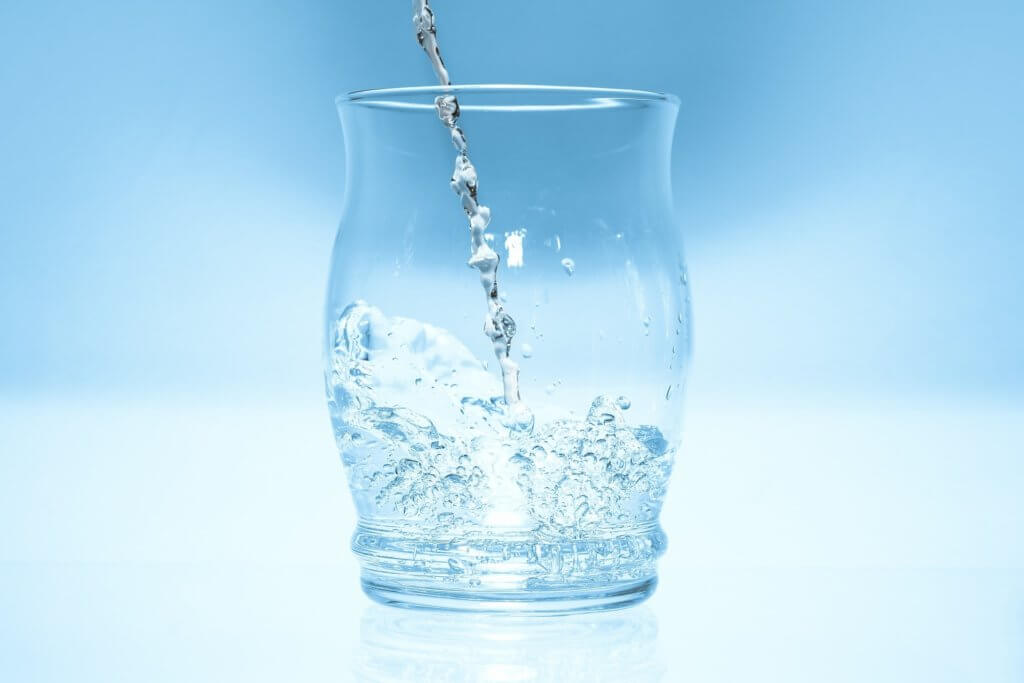Why staying hydrated in the winter is important doesn’t come to mind is because it’s cold and you aren’t feeling thirsty, but that’s exactly why you should hydrate. You may not realize it, but one of the best things you can do every day, especially in the cold weather months is to stay hydrated.
I know, I know. The last thing you are thinking about when you wake up for work in the morning on a cold day is drinking a glass of water.

For some people, it’s a breeze to chug down a glass of water first thing in the morning. If I didn’t make drinking a glass of water part of my morning routine it wouldn’t cross my mind at all. The one thing my flesh wants to reach for on a cold morning is a strong cup of hot coffee. #Truth
If you haven’t figured it out yet, I don’t love the winter. Living in the Northeast, you would think that I’m adapted to this climate, but I’m not. It doesn’t matter that I have a warm winter coat or whether I dress in layers when I go out because I do. I even drive to and from work.
When you live in a cold-weather climate, it’s all you can do sometimes to get out of a nice warm bed and get ready for work. So on a frigid winter morning, all I’m thinking about while getting ready each morning is how uncomfortable I’m going to feel when I step outside. I have to mentally brace myself for the cold air.
I’ll admit, drinking water first thing in the morning isn’t the most comforting thought when it’s freezing outside. But did you know it’s actually easier to become dehydrated in the winter months?
In the summer, you sweat more because it’s warm, and you tend to reach for liquids to help cool off. You also feel thirsty quicker especially if you’re relatively active.
When the weather is hot, I love an ice-cold bottle of water. I usually choose to eat salads a lot more in the warmer weather because they’re cool and they feel hydrating.
Why is that you ask? The vegetables I usually have in a salad during the summertime (lettuce, tomatoes, and cucumber) have high water content. I don’t want to feel cold, therefore I don’t think it’s a coincidence that I don’t enjoy having cold salads in the winter.
Table of Contents
So, why is it so easy to neglect to hydrate in the winter?
Hydrating yourself is the simplest thing to do and also the easiest thing to forget. For one thing, you don’t have those cues working for you in the winter that let you know you should hydrate. Sweating isn’t as noticeable in the winter, because of how quickly it evaporates in cold dry air.
You also lose water through just breathing. When you can see your breath outside in the winter, your body is actually losing water. If you love to run and you do it in all kinds of weather, then you have to make sure you stay hydrated.
It’s true that thirst isn’t a reliable indicator of dehydration, but studies show that feeling thirsty is 40% less likely in the winter. So, you can bet you’re going to become dehydrated if you’re relying on feeling thirsty as a sign that you need to hydrate.
Why Staying Hydrated In The Winter Is So Important
It’s fairly common knowledge that our bodies are approximately 70% water. Every cell, organ, and system in our bodies depend on water to function optimally. As mentioned, exercising in the winter can increase your hydration requirements.
Cold weather illnesses and viruses that typically go around in the winter tremendously deplete your body of water. Staying hydrated can support your immune system during cold and flu season by helping loosen congestion, flushing toxins out of your body and replenish fluid and electrolytes that your body loses. Have you ever had a gastrointestinal bug like the Norovirus?
The amount of fluid that leaves your body when you have a GI bug like the Norovirus will shock you. And, the consequences of severe dehydration can sometimes be irreversible.
Without getting into a full science lesson, I’ll try to keep it simple.
Whether you lose water through exercising or being sick, when you are dehydrated, your heart has to work harder to adequately perfuse the rest of your body with blood. Your brain’s function thrives on being properly perfused as do the other major organs in the body.
Dehydration if severe, can have detrimental effects on electrolyte balance, and kidney functions among other problems. The consequences of severe dehydration can be fatal. We’re talking cardiac arrest and/or stroke. Yikes!
Lucky for us humans, our bodies are amazing organisms that can compensate for dehydration. By producing what’s known as Antidiuretic Hormone or ADH, our bodies can conserve water or make the urine more dilute. This mechanism temporarily regulates your fluid status which can hold you over until you can hydrate yourself.
Here are some early warning signs that you may not be drinking enough water:
- headaches
- dizziness
- muscle fatigue and/or cramps
- darker colored urine
- dry skin
The dry skin issue is common in the winter even if you do get enough water. But staying hydrated internally can help relieve dry skin in addition to applying hydrating moisturizers topically.
How You Can Make It Easy To Stay Hydrated In The Winter
Staying hydrated in the winter (or anytime) takes a proactive approach. You could set a glass of water on your bedside table before you go to bed, or drink 8 oz of water with lemon right after you get dressed every day.
If you just don’t like the taste of water, infuse it with a wedge of lemon, lime, or orange. Berries, cucumber, and mint leaves are also refreshing. Don’t want cold water? Try drinking room temperature spring water instead.
Don’t forget, drinking herbal tea also counts as hydration, and it’s calorie-free.
Keep a water bottle with you at work. I bring a 32 oz reusable bottle filled with lemon water to work every day to stay hydrated in the winter. I aim to drink 2 liters of water every day. Sometimes I’m only able to get through 1.5 liters but I make the effort to get at least 48oz of water every day.
Do yourself a favor and make water the first beverage to hit your palate in the morning. It will set the stage for your body to function at its best. From there, find a way to drink 16oz at three different times during the day and you’ll be giving your body what it needs to power through your busy days.
Are you seeing early signs of dehydration? Do you struggle to stay hydrated in the winter?
Let me hear from you in the comments!
Sources:
https://www.bustle.com/p/7-health-issues-you-didnt-know-came-from-dehydration-9764200




